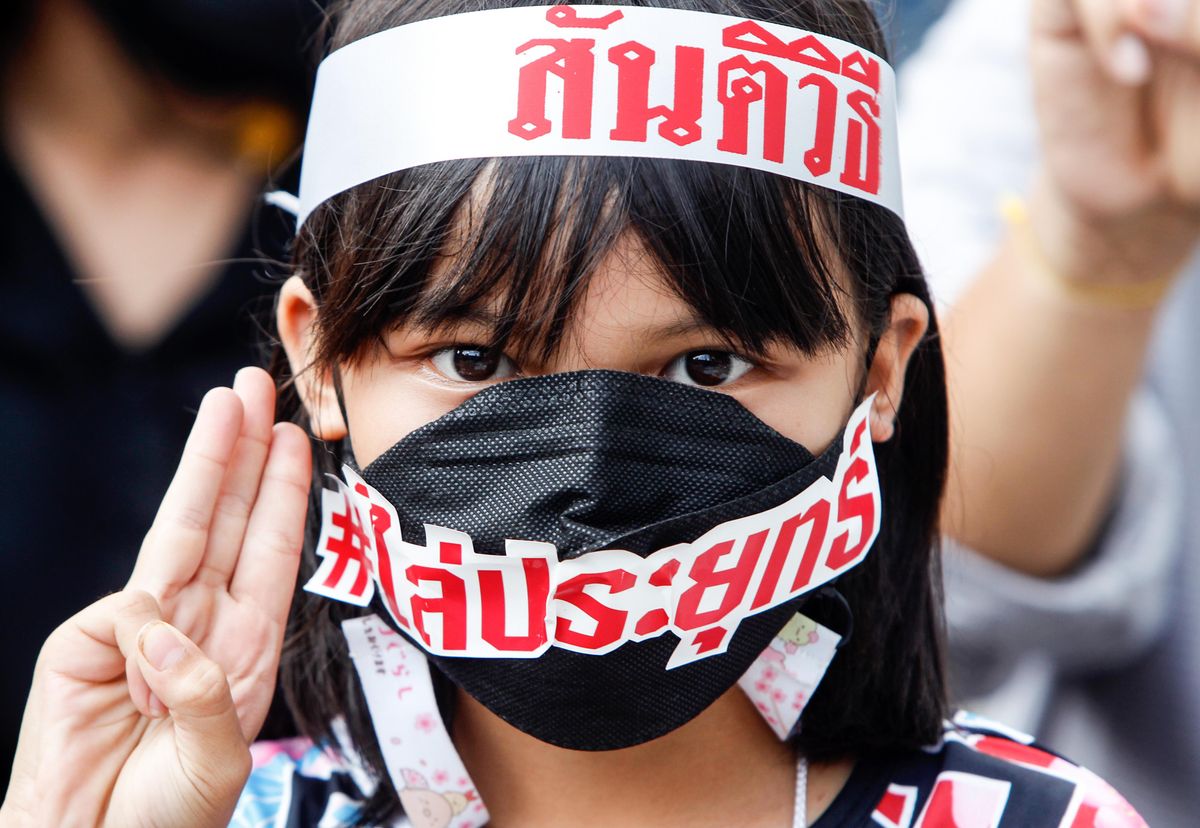Thai PM under pressure: Thousands of Thais took to the streets of Bangkok on Thursday to call for the resignation of embattled PM Prayuth Chan-ocha, who faces a no-confidence vote — his third in 18 months — on Saturday. For over a year, the retired general and 2014 coup leader — who's popular among older Thais, cozy with the business elite, and ultra-loyal to the king — has stared down a youth-led movement demanding broad democratic reforms, including, for the first time ever, curbing the powers of the monarchy. Now, the protesters want Prayuth out because Thailand has been badly hit by COVID while barely 11 percent of the population has been fully vaccinated — perhaps because the government is relying heavily on domestic jab production by a company owned by the royal family that has no previous experience in manufacturing vaccines. Prayuth will survive because he has enough votes in parliament, but the pressure on him from Thailand's emboldened youth won't go away.
Can the Taliban govern? Two weeks after taking over Afghanistan, the Taliban are preparing to announce their new government, with Sheikh Haibatullah Akhundzada as the supreme leader. But as we've written before, it's easy for gun-toting fundamentalists to take over city after city; it's much harder to actually govern the country. Perhaps realizing this, the Taliban have asked civil servants to stay in their posts to keep the government up and running. Some have agreed, while others, particularly high-level officials, have already fled the country, or do not want to work for the Taliban because they deeply mistrust them. Moreover, the Taliban do not seem to have a plan for dealing with the country's financial crunch, given that most US-held assets and foreign aid remain frozen. As the currency plunges and food prices surge, former central bank chief Ajmal Ahmady told GZERO Media the Taliban could soon run out of money. What's more, the group has still not fully consolidated power, battling rebels loyal to a former mujahideen commander in the Panjshir Valley (though that pocket of resistance will likely be quashed soon). The Taliban will project confidence when they announce a new cabinet in the coming days, but many of their biggest challenges are just beginning.
India locks down Kashmir after separatist leader's death: Although Kashmir's separatist leader Syed Ali Shah Geelani passed away of natural causes on Wednesday, the Indian government is taking no chances with the possibility of unrest in the wake of his death: Delhi has cut internet access, imposed a lockdown, and deployed troops around the Muslim-majority region, which for decades has chafed against Indian rule. Authorities evidently forbade Geelani's family from burying him in a prominent martyrs' graveyard. For decades, Geelani was a combative and charismatic advocate of Kashmiri self-determination, whose hardline rejection of dialogue with India often alienated more moderate forces. His death comes at a sensitive time — last month marked two years since the Indian government of Hindu nationalist PM Narendra Modi stripped Kashmir of the autonomy that the region had enjoyed for decades.
Suga steps down: Japan's PM Yoshihide Suga announced early on Friday that he will not seek re-election as head of the governing Liberal Democratic Party. The announcement abruptly ends his controversy-plagued premiership after just one year, which has seen Suga's approval ratings plummet. Suga took over in September 2020 from his longtime boss, the charismatic Shinzo Abe, who resigned due to health reasons. In a time of continuing COVID emergency in Japan, we'll be watching the upcoming race to succeed him as both LDP leader and prime minister. The LDP will vote on party leadership on September 29. A general election will follow later in the year.

















